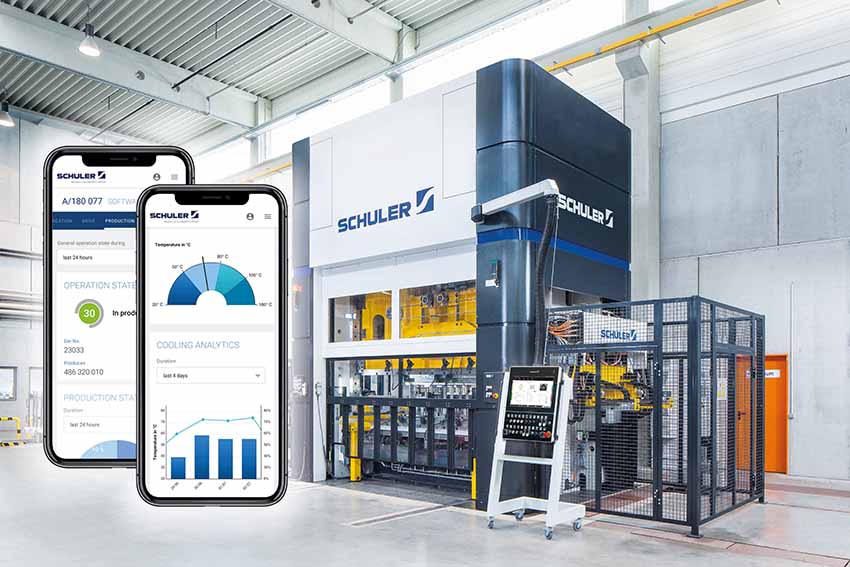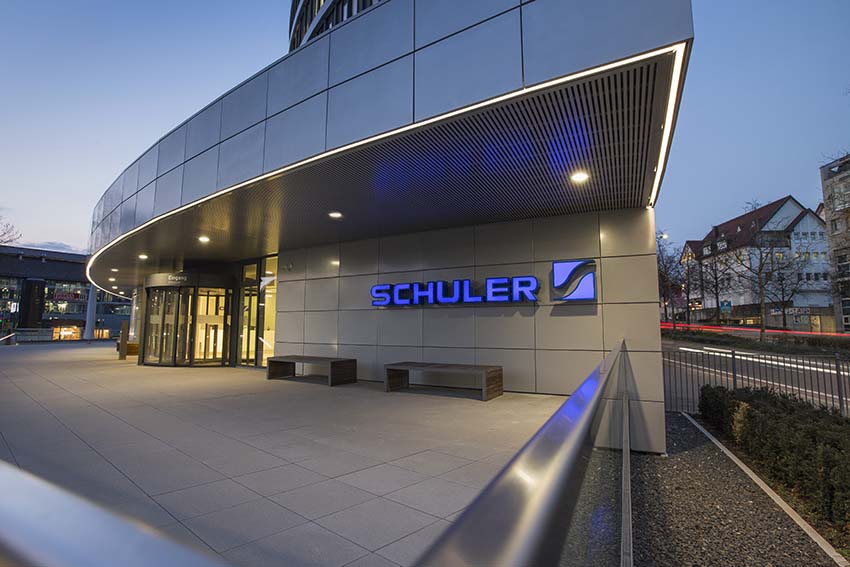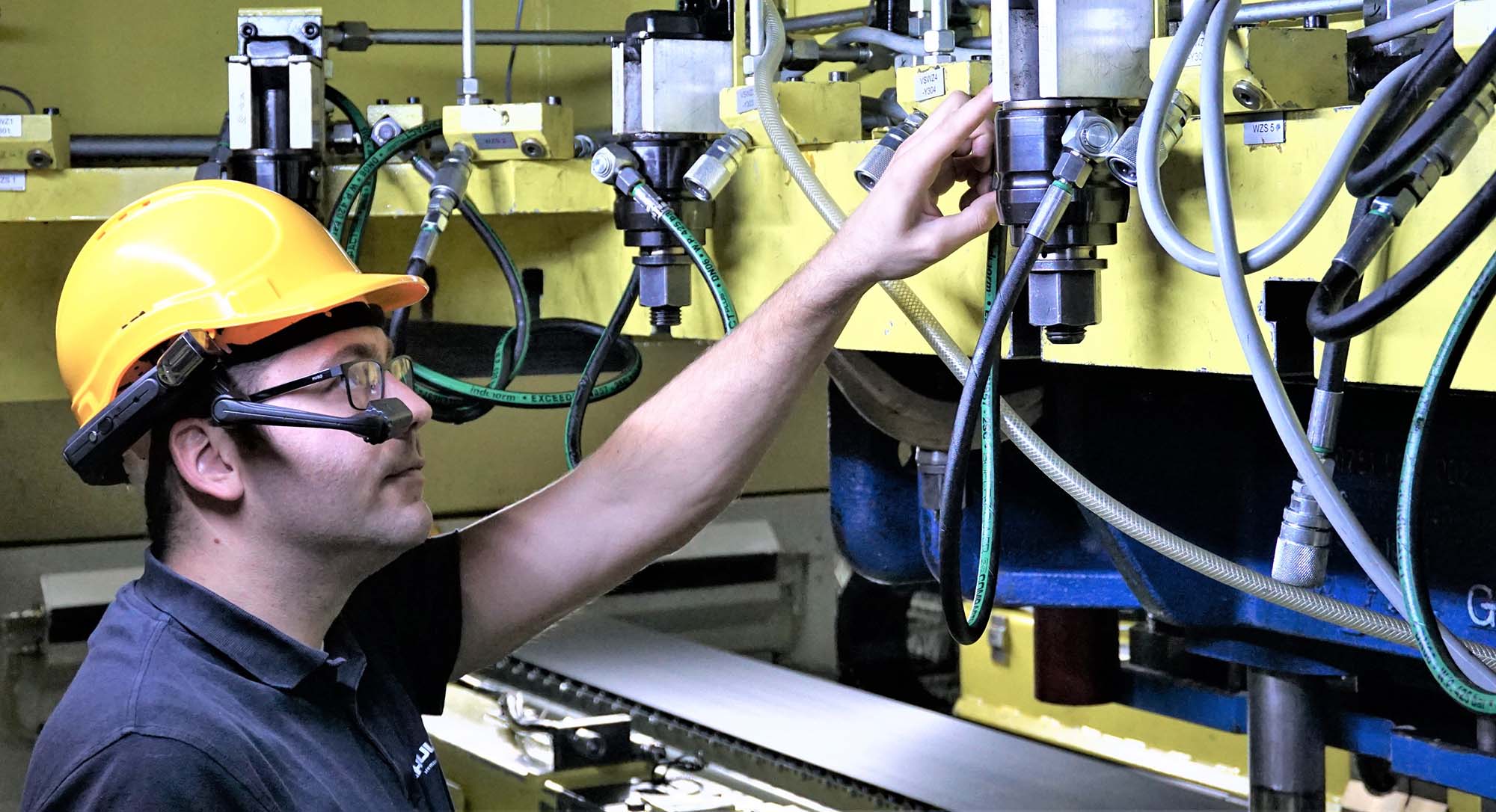Schuler offers customized cutting-edge technology in all areas of forming—from the networked press to press shop planning.
Easy Engineering: What are the main areas of activity of the company?
SCHULER: Our products include automation and software solutions, dies, process know-how and service for the entire metalworking industry. Our customers include automobile manufacturers and automotive suppliers, as well as companies in the forging, household appliance and electrical engineering industries. Presses from the Schuler Group mint coins for more than 180 countries. When it comes to the digital transformation of forming technology, we support our customers worldwide as a supplier of innovative system solutions. Founded in 1839 at our headquarters in Göppingen, Germany, Schuler AG has approx. 5,000 employees at production sites in Europe, China and the Americas, as well as service companies in more than 40 countries. The company is part of the international technology group ANDRITZ.
E.E: What’s the news for 2021 about new products?
SCHULER: Schuler is accelerating the digitalization of its product portfolio as a customer productivity driver. With the “Digital Suite”, the Göppingen-based technology group presents the first virtual product platform that allows users to test, configure, and order the entire spectrum of existing and new digital Schuler solutions for forming technology.
Through the Digital Suite, existing and potential customers also have direct access to product experts from Schuler, who are the go-to contacts for discussing specific application cases and requesting additional detailed information. Rohitashwa Pant, Chief Digital Officer (CDO) at Schuler, explains: “Our goal is for each product in the Digital Suite to be able to help reduce unit costs and increase the efficiency of machines and systems at the customer end. The use of open interfaces and standard technology makes our products easy to integrate into customer IT networks. The fact that we’re now making our networked solutions available on a virtual platform in a bundled format shows that digitalization in forming technology is becoming increasingly important, and that Schuler is playing a leading role in this process.”
Products in the Digital Suite include Schuler Connect as a virtual service system for troubleshooting without on-site technicians, improved Track and Trace solutions for end-to-end performance monitoring of components in a press as well as Visual Die Protection, which uses artificial intelligence for the advance identification and elimination of imminent sources of damage where dies are used.

E.E: At what stage is the market where you are currently active?
SCHULER: Schuler expects to recoup its pandemic-related losses in new orders and earnings suffered in the corona year 2020 over the coming one to two years. The current influx of orders, for example in the field of electromobility, together with sustained cost reductions from the company’s ongoing transformation process, and the successful launch of attractive digitalized products all give grounds for this forecast. In terms of sales, however, the weak order backlog level at the end of 2020 will still impact the current year.
In 2021, we expect to be able to clearly exceed the low level of new orders received last year and achieve a positive operating EBITA result again. Last year, our order books were well stocked in the first two months, before corona brought our business more or less to a standstill for several months. All in all, new orders were down by more than 20 percent in 2020 Precautionary measures for capacity adjustments and restructuring in the mid-double-digit million range pushed EBITA into negative figures.
Since Schuler has been wholly owned by the Austrian Andritz Group, it has no longer published its own key financial figures. They are included in the figures for Andritz’s Metals Forming division, which the company published in early March (www.andritz.com).
Following a complete standstill in the second quarter, Schuler received a growing number of orders in the third and fourth quarters for lines to produce conventional car bodies and panel parts, as well as battery casings and laminations, from both new and established suppliers of e-vehicles. This positive trend is continuing, but is still being offset by the low capital spending of traditional car manufacturers and, above all, their suppliers. In Europe more so than in the rest of the world. Consequently, the price competition in many of our sales markets is extremely fierce – and not just since corona – pushing some manufacturers to their very limits and obviously also squeezing Schuler’s margins.
In 2019, Schuler already launched a series of measures to counter this trend. In the past year, these included the closure of its consistently loss-making die construction plant in Weingarten, the pooling of the Hydraulic Presses business unit in Gemmingen, and a further streamlining of management and administrative structures. These measures helped the company to generate positive operating results again as of the second half of 2020.

An important part of the transformation process is also the extensive digitalization of the control and automation technology with which the presses are equipped. Schuler launched the corresponding offerings as part of its new “Digital Suite”. Other products in this range include: “Schuler Connect”, a virtual service system for troubleshooting without the need for on-site technicians; and “Visual Die Protection”, which uses artificial intelligence to detect and remedy the cause of potential damage at an early stage when using dies.
This represents a measurable added value for our customers in the form of lower unit costs and reduced start-up times and downtime.

